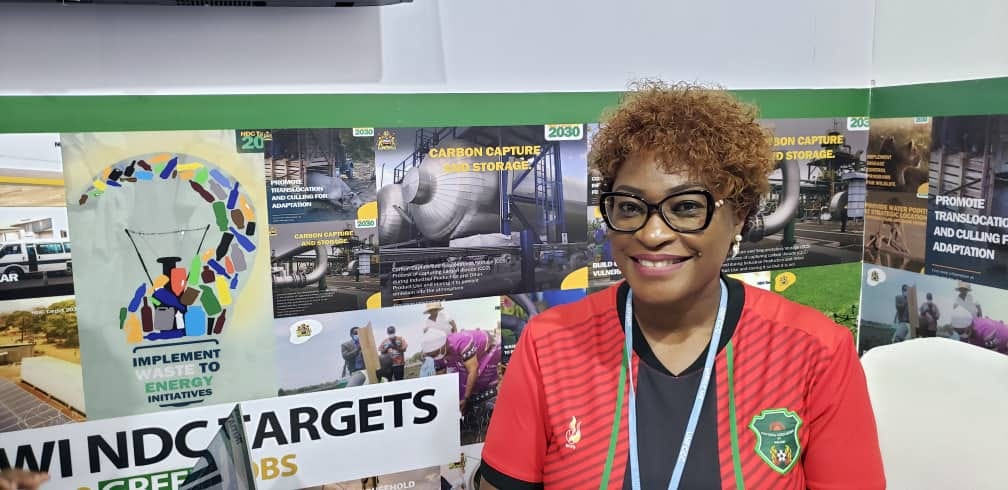Malawi needs US$46.3 billion for climate action
Malawi's budget for a climate action plan to reduce emissions and adapt to climate impacts is $46.3 billion, with an additional $30 billion in external funding required.
Sharma El Sheik: Malawi's budget for a climate action plan to reduce emissions and adapt to climate impacts is $46.3 billion, with an additional $30 billion in external funding required.
Shamiso Banda, Deputy Director of Environmental Affairs in the Ministry of Natural Resources and Climate Change, stated on Saturday that the plan is known as Nationally Determined Contributions under the United Nations convention, which is currently being implemented in Egypt (NDC).
This is an overview of what each country is required to do under the convention in terms of mitigating carbon emissions. Malawi's first NDC was created in 2017, and it was updated in 2021.
“For countries like Malawi which are least developed and developing, they are given that leeway of coming up with adaptation requirements alongside the mitigation requirements so our Nationally Determined contributions are estimated at US$46.3 billion and about US$30 billion from that amount will require financing support. We cannot do that on our own. We will need financial support as well as technical support to undertake them,” Banda said.
She said that the government is forming coalitions and even bilateral agreements to finance the NDC. Malawi is estimated to require $46.3 billion between now and 2040.
South Africa's total GCF is US$179.2 million, Zambia's is US$91.2 million, and Malawi's is US435.3 million, according to Green Climate Fund (GCF) country reports. This is from 2010 when the fund was established.
The Green Climate Fund is a fund established within the UNFCCC framework as an operating entity of the Financial Mechanism to assist developing countries in climate change adaptation and mitigation practises.
Banda stated that under finance, they have been calling for simplified procedures to obtain funds because the initial procedures were unfavourable to Least Developed Countries like Malawi.
“We have been calling for simplified procedures so that countries like us should be able to access that fund. Green climate fund was set to help us under this convention but the requirements have been favourable to rich countries,” she said.
Malawi Planning Commission Development Planning Manager Sipho Billiat stated that the country has less access to international funding than other countries. He stated that the commission is attending COP27 with a financial interest.
“There is international financing that is available for us to access but we are not accessing it as much. Now I want to see what are the problems that are making us not to access funding. You know in Malawi there is a problem with financing in most of these projects and if we cannot access it. Cheap financing that is available it means we are losing out as a member, as a party,” Billiat said.
He said that there is a need to be aware of available financing opportunities and to match those opportunities to the capacity required to access such financing.
Negotiations are still ongoing, and Malawi's focus is on loss and damage, and adaptation finance, which Malawi wants to be doubled to US$200 billion through negotiating bodies.
Malawi and its negotiating partners also want Africa to be designated as having special needs in order for the continent to receive more climate action funding.





